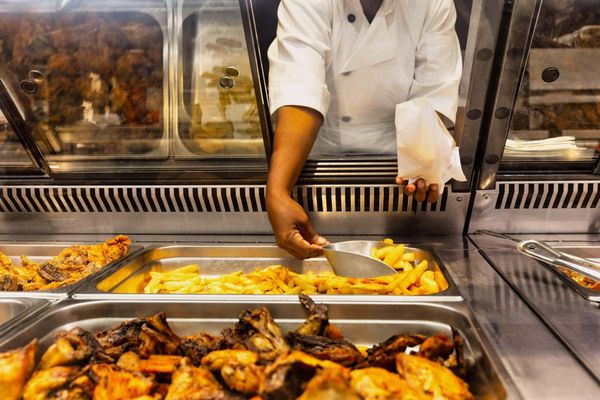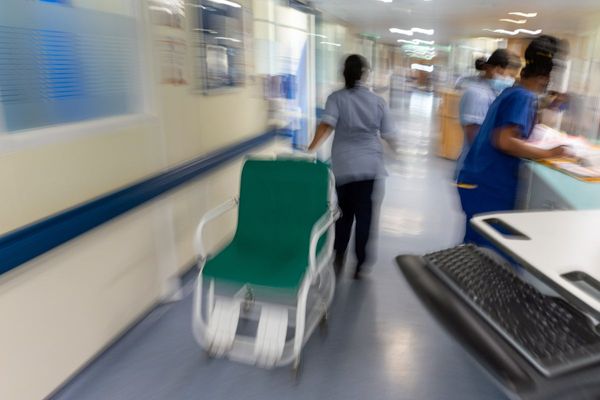
Monkeys flown into the UK for laboratory testing were so badly injured that their crates were smeared with blood, photographs suggest.
The long-tailed macaques endured journeys of up to 25 hours from Mauritius and Vietnam, transported in cramped wooden crates too small for them to stand upright.
After quarantine in the Netherlands, the macaques were driven to Brussels airport before being flown to Manchester airport.
Activists, who said the animals would have been terrified on the journeys, slated the “cruel” conditions and the fact the UK still conducts experiments on primates.

Long-tailed macaques are the main primate species used in toxicology tests for drugs and chemicals by research organisations for pharmaceutical and chemical companies, as well as by universities. Dogs, pigs and rodents are also used.
Toxicity testing involves placing monkeys in restraining devices and dosing them with drugs or chemicals through a tube inserted into their stomachs (gavaging). The substances may also be injected, often without anesthetic, or inhaled. This may be daily, and studies show side effects include vomiting, convulsing, internal bleeding and death.
Importing monkeys is quicker and easier than breeding them in the UK, insiders say.
The photos, which were brought to light in freedom of information requests by the Dutch-Belgian group Animal Rights, sparked renewed criticism over the ethics of animals in research.
Group members who tracked the journeys of the planes and vans believe the monkeys were destined for a drug developer. The company did not respond to a request for comment.

The FOI replies revealed that one animal, imported on 28 May, suffered an anal prolapse — a potentially fatal condition.
A Belgian animal welfare inspector’s checklist stated no animals were wounded, yet photos appear to show an injured monkey with the condition.
On another occasion, blood was seen in a monkey crate transported on 30 April, but the injury was deemed minor.
UK Home Office guidelines state that sick or injured animals should not normally be considered fit for transport.
In July last year, 80 long-tailed macaques were transported in a plane’s hold at just 10C, despite warnings from Flemish officials that such conditions were unsuitable. Officials also flagged that prolonged loading times in Brussels risked causing significant stress to the primates.

In a separate case, a monkey died on a flight to New York after reportedly suffering an adverse reaction to sedation. The animal was among hundreds flown from the Netherlands, France, and Spain. In 2021, more than one monkey died en route to the US.
Animal rights organisation Action for Primates described these cases as “the tip of the iceberg”, highlighting that between July 2022 and May 2023, 10 flights from Mauritius and Vietnam delivered macaques to the UK via European airports.
Research confirms air travel as a major stressor for primates. According to Ned Buyukmihci, emeritus professor of veterinary medicine and adviser to Action for Primates, flight-related stress could exacerbate injuries, leading to severe pain, shock or even death.

Sarah Kite, co-founder of Action for Primates, said: “Shipped as cargo, primates are forced to spend many hours confined in small single transit crates and may have to endure poor ventilation, unfamiliar and loud noise, temperature fluctuations and delays en route as they are shipped around the globe.”
However, the Understanding Animal Research organisation says experiments involving non-humans have provided many treatments for conditions such as cancer and diabetes as well as human vaccines. It argues that hundreds of millions of human and animal lives have been saved or improved as a direct result of research on animals.
A spokesperson for Cheshire Animal Rights Campaigns and Animal Welfare Party called on Manchester airport and shareholders to end monkey imports.
An airport spokesperson said that, like other airports, it could not take a stance on the import of any cargo, adding: “There are clear laws, set by government, that define what can and cannot be brought into the UK as cargo, and it would not be appropriate for the airport to act independently of those laws.”

The Belgian government said: “In our opinion, there was no failure. An assessment of the situation was made and what seemed to be the best option for the animals was acted upon.”
They said the injured monkeys were otherwise in good condition, adding: “It was decided that – given the short duration of the transport – it was better to allow the animals to travel.”
They added that on arrival no further problems were found and the inspector reminded workers to avoid low temperatures in future.
A separate freedom of information request has shown 2,118 primates were imported last year, and UK government statistics show there were 2,169 procedures on primates.

While they are not believed to have received the monkeys in the latest incident, some of the leading institutions conducting animal research include the University of Oxford, University of Cambridge, the Francis Crick Institute, University of Edinburgh, UCL, the Medical Research Council and Imperial College London.
A spokesperson for the government’s Animal and Plant Health Agency said: “It’s upsetting to receive reports of animals in distress; we always take reports of breaches in animal welfare regulations very seriously and we are looking into the exact details of this case.
“When animals are transported, it is the responsibility of the vet in the country of origin to decide if the inspected animal is fit to travel.”







